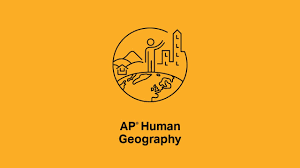AP Human Geography

Students investigate spatial relationships using maps, models, and datasets; analyze cultural, economic, and political processes at multiple scales; and develop geographic thinking skills to interpret real-world issues.
Topics include geographic tools and methods, population and migration, cultural patterns, political organization, agriculture and rural land use, cities and urban processes, and industrial/economic development. Emphasis is on spatial analysis, evidence-based argument, and using geographic methods.
Join the Course
Kickstart your learning journey by enrolling in this online course today.